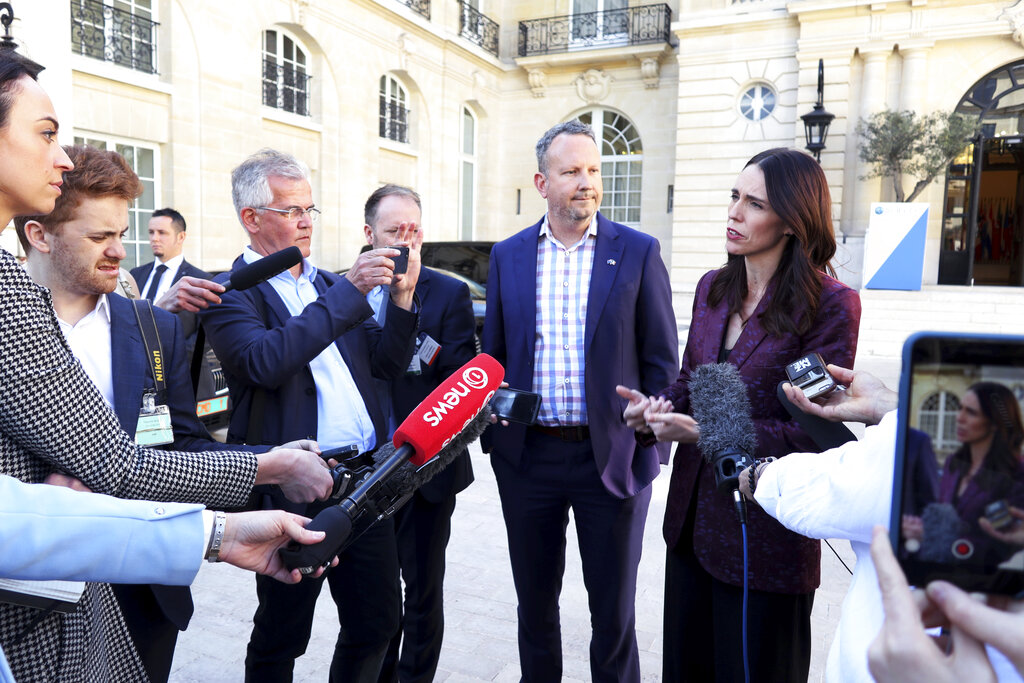
New Zealand Prime Minister Jacinda Ardern, right, gives a press conference, at the OECD headquarters, in Paris, Tuesday, May 14, 2019. The leaders of France and New Zealand will make a joint push to eliminate acts of violent extremism from being shown online, in a meeting with tech leaders in Paris on Wednesday. (Photo: AP)
Livestreaming terrorist attacks. Using social media to spread deadly ideas. Manipulating banned videos to keep sharing them online.
World leaders and tech bosses are meeting Wednesday in Paris to find ways to stop all this. They're working all day on the "Christchurch Appeal," named after the New Zealand city where 51 people were killed in a March attack on mosques.
The attacker streamed the killing live on Facebook, which announced tougher livestreaming policies on the eve of the meetings "to limit our services from being used to cause harm or spread hate."
New Zealand Prime Minister Jacinda Ardern welcomed Facebook's pledge to restrict some users from Facebook Live and invest $7.5 million in research to stay ahead of users' attempts to avoid detection.
She said she herself inadvertently saw the Christchurch attacker's video when it played automatically in her Facebook feed.
"There is a lot more work to do, but I am pleased Facebook has taken additional steps today ... and look forward to a long-term collaboration to make social media safer," she said in a statement.
Ardern is playing a central role in Wednesday's meetings in Paris, which she called a significant "starting point" for changes in government and tech industry policy.
Twitter, Google, Microsoft and several other companies are also taking part, along with the leaders of Britain, France, Canada, Ireland, Senegal, Indonesia, Jordan and the European Union.
Officials at Facebook said they support the idea of the Christchurch appeal, but that details need to be worked out that are acceptable for all parties. Free speech advocates and some in the tech industry bristle at new restrictions and argue that violent extremism is a societal problem that the tech world can't solve.
Ardern and Wednesday's meeting host, French President Emmanuel Macron, insist that it must involve joint efforts between governments and tech giants. France has been hit by repeated Islamic extremist attacks by groups who recruited and shared violent images on social networks.
Speaking to reporters ahead of the meetings, Ardern said, "There will be of course those who will be pushing to make sure that they maintain the commercial sensitivity. We don't need to know their trade secrets, but we do need to know what the impacts might be on our societies around algorithm use."
She stressed the importance of tackling "coded language" that extremists use to avoid detection.
Before the Christchurch attack, she said, governments took a "traditional approach to terrorism that would not necessarily have picked up the form of terrorism that New Zealand experienced on the 15th of March, and that was white supremacy."


